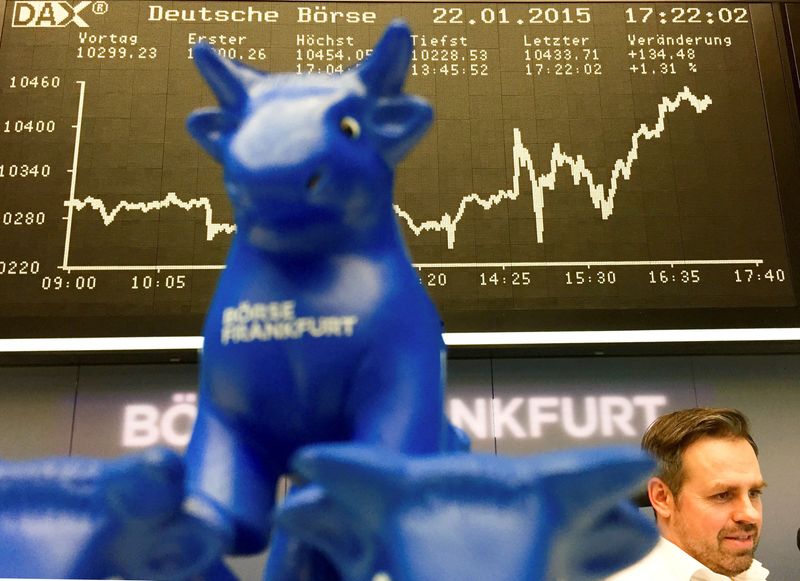This post was originally published on this site

At 04:05 ET (08:05 GMT), the DAX index in Germany traded 0.6% lower, the CAC 40 in France dropped 0.5%, while the FTSE 100 in the U.K. traded 0.2% lower.
The main European indices recorded healthy gains during July, with the pan-Europe Stoxx 600 up 2%, helped by signs that European consumer inflation had peaked.
However, the aggressive monetary policy tightening that the European Central Bank has undertaken to curb inflation has had an impact on growth in the region.
The extent of this was illustrated by the release of manufacturing PMI numbers from the eurozone and many of its members.
Spain was the first out of the blocks, with its manufacturing PMI falling further into contraction territory. Italy’s PMI showed some improvement, but remained firmly below the 50 line that separates expansion from contraction. However, it was Germany that really disappointed, as the manufacturing PMI in the eurozone’s largest economy fell to 38.8 in July from 40.6 in June.
Data from China earlier in the session showed the Caixin/S&P Global manufacturing purchasing managers’ index fell to 49.2 in July from 50.5 in June, indicating that factory activity in the second largest economy in the world contracted in yet another sign of the country’s post-pandemic recovery’s struggles.
Additionally, data from the British Retail Consortium, released early Tuesday, showed that prices in U.K. stores fell for the first time in two years, coming in 0.1% lower in July than in June, while annual inflation dropped to 7.6% in July from 8.4% the prior month.
The Bank of England meets on Thursday, and is widely expected to raise interest rates for the 14th consecutive meeting as it continues to battle the highest inflation rate among the major industrialized nations.
The European earnings season is now in full flow.
HSBC (LON:HSBA) stock rose 2.8% after Europe’s largest bank announced a $2 billion buyback after reporting a higher profit and revenue for the first half of 2023, aided chiefly by stronger margins amid rising interest rates.
The Asia-focused bank also raised its near-term return on tangible equity goal, a key performance target.
BP (LON:BP) stock rose 2% after the oil major raised its dividend and announced a share buyback despite an earnings drop, while Diageo (LON:DGE) stock rose 1.9% after the spirits giant announced a 6.5% rise in sales for the past year as it was able to pass higher costs onto its resilient customers.
Domino’s (LON:DOM) stock soared over 6% after the U.K. pizza group announced a hefty share buyback program and raised its annual profit forecast range.
On the flip side, Aston Martin (LON:AML) stock fell over 6% after the luxury car manufacturer said on Tuesday it has raised over £200 million (£1 = $1.2818) in equity to cut down its expensive debt. Fresnillo (LON:FRES) stock fell over 7% after the miner disappointed by not lifting its 2023 forecasts despite the high prices of precious metals.
Oil prices slipped lower Tuesday after private survey data showed further signs of weakness in the Chinese economy, the world’s largest importer of crude.
By 04:05 ET, U.S. crude futures traded 0.5% lower at $81.36 a barrel, while the Brent contract dropped 0.5% to $85.00.
However, both contracts remained near three-month highs on signs of tightening global supply, as major producers started implementing output cuts.
Additionally, gold futures fell 0.8% to $1,993.35/oz, while EUR/USD traded 0.1% lower at 1.0981.

